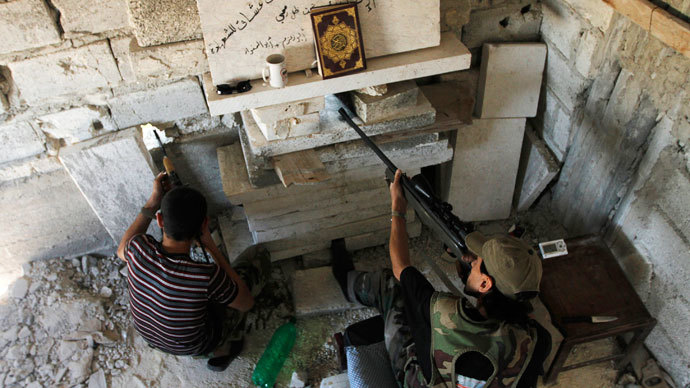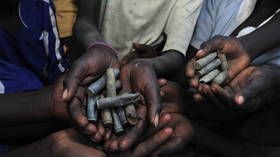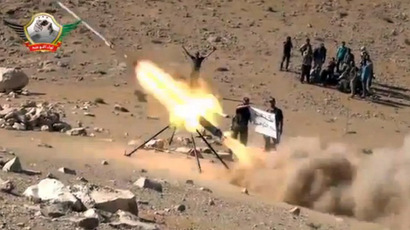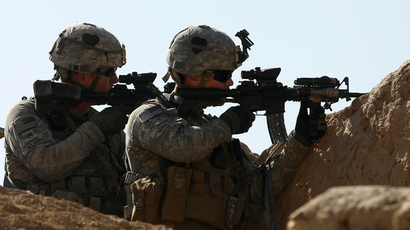US spooks stockpile arms for Syrian rebels in Jordan for August onslaught – report

The CIA is stockpiling arms in Jordan for US-trained Syrian rebels, which they will use in an offensive against Damascus starting August, according to The Wall Street Journal. Up to hundreds of fighters are to be armed and sent to the battlefield monthly.
The intelligence agency had stored Soviet-made arms at a network of secret warehouses in advance of the Obama administration’s decision to provide military assistance to the militants fighting against the government of Bashar Assad, the newspaper reports. The weapons include anti-tank missiles, which may be handed over to the Syrian rebels.
The CIA was chosen to deliver arms to the Syrian revels to limit public disclosures and restrict oversight to a small group of lawmakers, who would oversee the clandestine operation, the report explains.
Other countries may join the US program for arming the rebels. Washington is in talks with France about pre-positioning European-procured weapons in Jordan. Saudi Arabia is expected to provide some portable anti-aircraft weapons as well, the WSJ says.
The weapons are meant for Syrian rebels trained by US instructors, the report says. The CIA says it has an “elaborate” vetting system, which will supposedly prevent the American-trained and armed fighters from joining jihadist forces among the anti-Assad troops. The agency may co-opt aid from the US special operations forces and similar units in other countries like Jordan and the United Arab Emirates to train the rebels, the report says.
Up to several hundred troops may be sent into Syrian territory every month under the program, the newspaper says, citing diplomatic sources. The rebel troops will be deployed starting early August and will need four to five months before making “a meaningful difference” in the Syrian civil war, unnamed US officials told WSJ.
Earlier media reports said the CIA played an important part in funneling weapons, which countries like Qatar and Saudi Arabia have been smuggling to Syrian rebels for more than a year. The participation was expected to prevent the arms from ending in the hands of Al-Qaeda-linked militants fighting in Syria.

The Obama administration announced plans to provide military support to rebel forces this month after accusing the Assad government of using chemical weapons against rebel forces. Earlier, similar allegations came from France and UK. The UN and several nations, including Russia, said the evidence of the alleged chemical attacks by the Syria army, which the US showed them, was inconclusive.
Two separate reports on the issue sent to the UN by the US and
Britain described 10 cases of suspected use of chemical weapons
in Syria, a UN diplomat told AP on Wednesday. The US accuses
Damascus of being behind at least two of those, according to a
letter sent by US envoy to the UN Susan Rice to UN
Secretary-General Ban Ki-moon.
The US and Russia are engaged in a joint effort to arrange a peace conference in Geneva, with hopes of paving the way for a political solution to the Syrian crisis. The conference is meant to gather all parties with stakes in the conflict to agree on a way to end the bloodshed, which has already claimed an estimated 100,000 lives.
The effort however is stalled by a number of obstacles, including the differences over who should get invited. Damascus objected to Saudi Arabia’s participation, while some of the organizers stood against inviting Syria’s ally Iran. There is no unity among the opposition forces over their participation and representation.
Amid the ongoing organizational problems, the planned date of the conference has been postponed several times. UN peace envoy to Syria Lakhdar Brahimi said Tuesday he didn’t expect the meeting to happen before August.
After the US announced plans for arming Syrian rebels, Moscow, Washington’s partner in organizing the peace conference, said the move didn’t help their joint effort.















